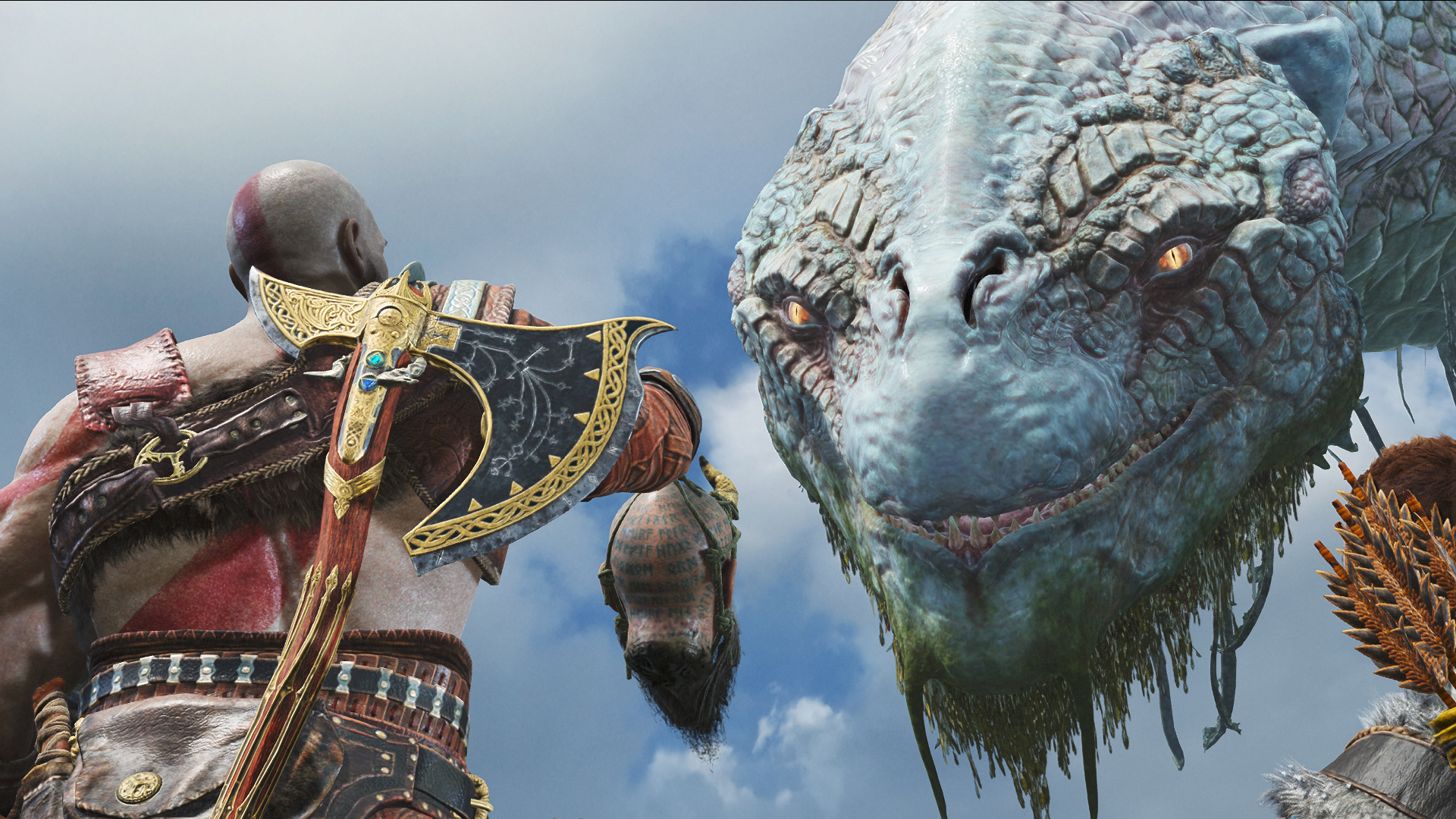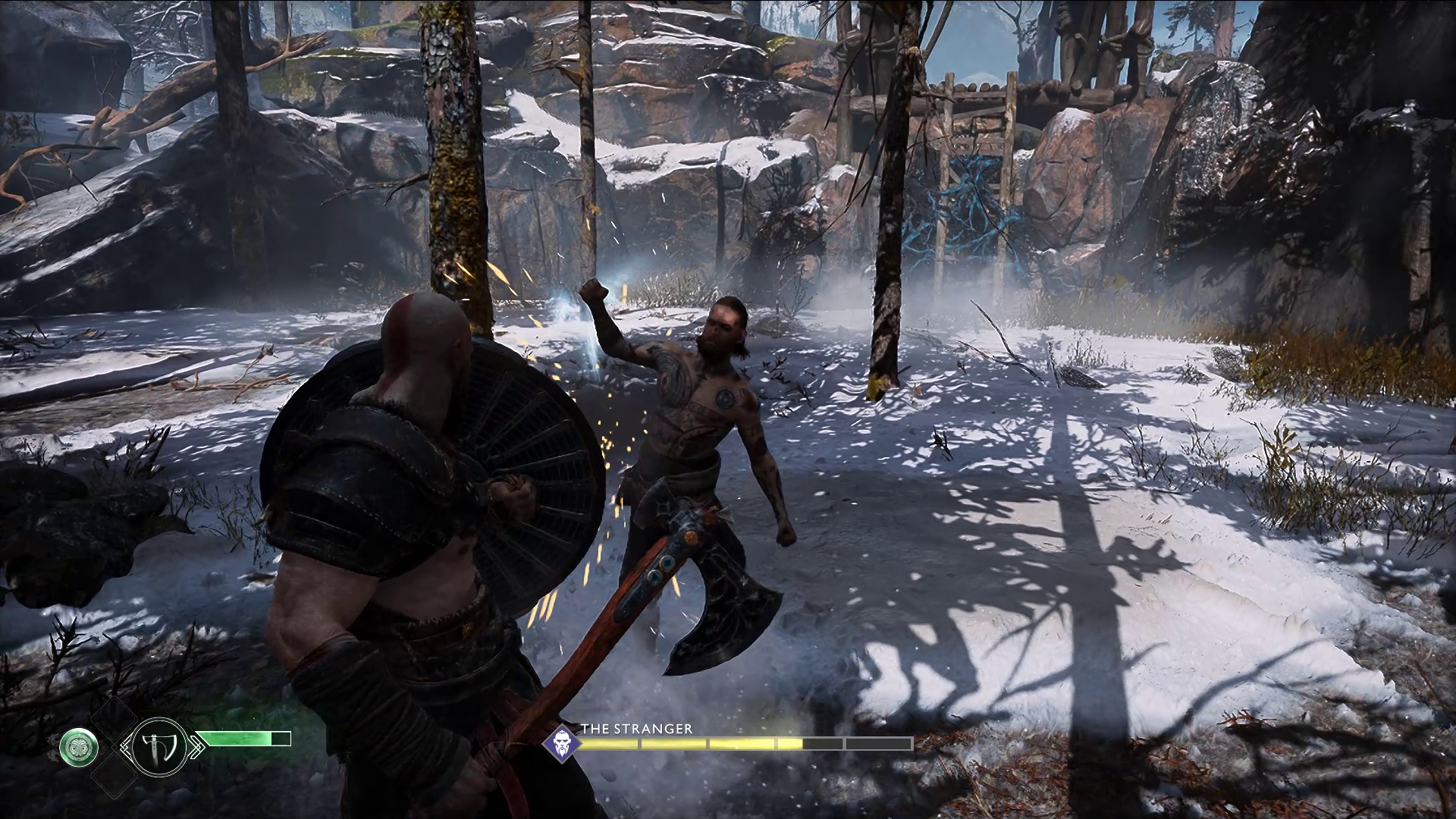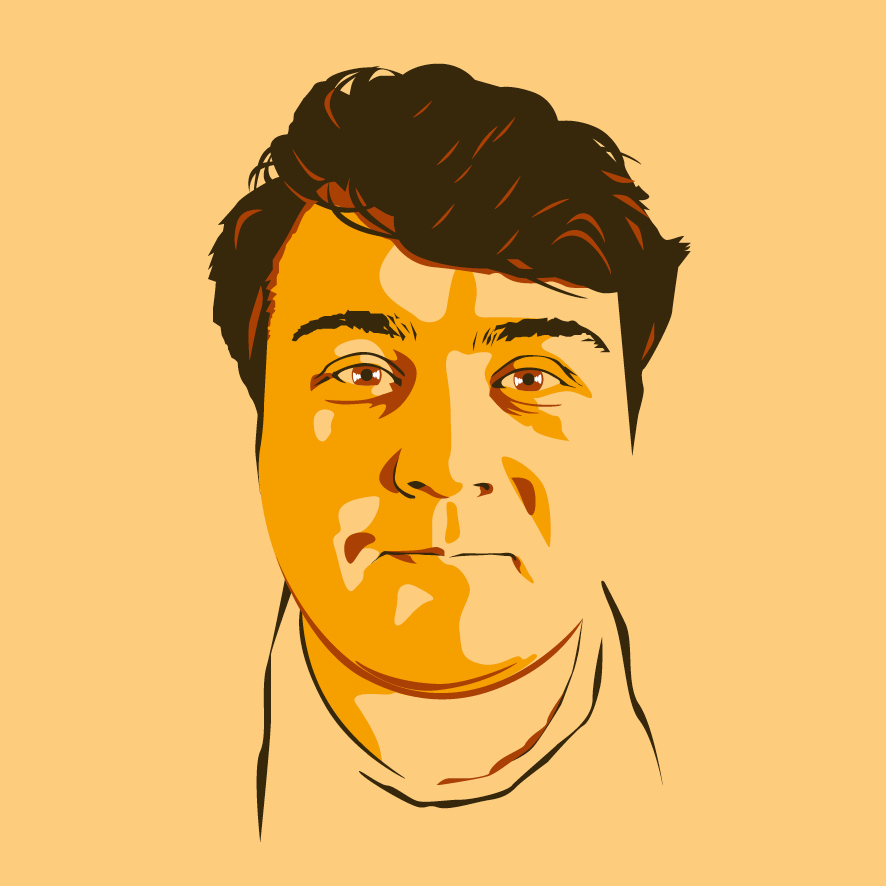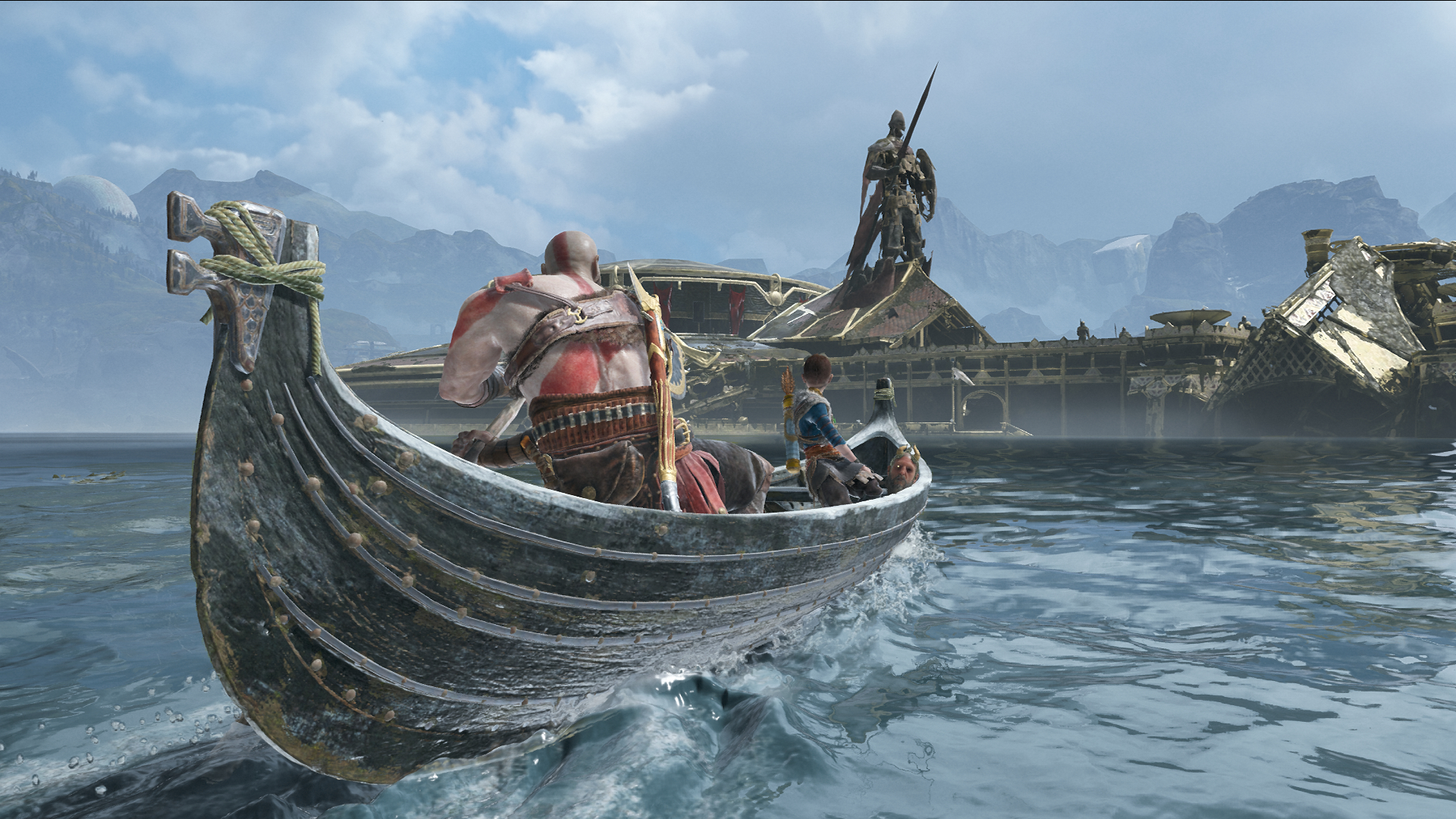Our Verdict
The best game on PS4 is now one of the best games on PC.
PC Gamer's got your back
What is it? An action RPG family roadtrip
Expect to pay $50/£40
Developer Sony Santa Monica
Publisher PlayStation PC
Reviewed on RTX 3060, Ryzen 7 5700G 3.8Ghz, 16GB RAM
Multiplayer? No
Link Official site
God of War is a PC game. That still felt weird to say as I wrapped up my second playthrough over the holidays. Not far above it on my Steam library sits another game that is "of War" for a different master—Gears 5. Just a few years ago, these two tentpole series existing on the same device was impossible. Now they share a virtual shelf.
Sony's latest angry dad game is evidence that the PC is the ultimate videogame unifier, and a great reminder of how the platform can bring out the best in games. I've killed my way across Midgard at 30 fps on a PS4 and 4K on PS5, but I don't think I can go back to either after 24 hours of buttery smooth monster chopping at 90+ fps. This is a damn good port, at least on my higher-end PC.
If you skipped God of War 2018 or haven't touched the series at all, this is the God of War to play. All you need to know going in is that Kratos was Athena's best murder man until he was betrayed and decided to kill all of the gods (including his daddy, Zeus). This soft reboot picks up years later. In that time, Kratos left a now-godless Greece and wandered into the Norse lands, where he gained a wife (who has just passed away at the start of the game), a son named Atreus, and a glorious beard.
Family matters
God of War is its restraint. It's a small story in a world of gigantic characters. Kratos and Atreus aren't out to save the world—they just want to spread their wife/mother's ashes on a big mountain. They're not looking for a fight, but end up walking into a bunch of them because, apparently, Midgard has been a nightmare land of evil trolls, poison witches, and zombies for the last century or so. Much of the game is basically carving a path through this broken world, unraveling the petty god drama that led to its ruin.
There's a lot of The Last of Us and Uncharted in its puzzly moments—hoisting young Atreus up a ledge to kick down a rope and jostling dilapidated supports to make a bridge are pages straight out of the Naughty Dog playbook—but these familiar puzzles get to have a lot of fun with Kratos' superhuman strength.
My strongest memories all revolve around one of the greatest weapons in videogames: the Leviathan Axe.
It's both cool and funny how often Atreus ponders how they're going to cross a gap just as Kratos lifts a beam the size of six cars or spins an entire building like it's a windup toy. Where Nathan Drake looks for a chain to lift an ancient pulley, Kratos simply throws his axe at the gears so hard that they spin. For a character that used to mostly show his toughness by killing every living thing in the room, it's nice to see Kratos throw his weight around the world itself.
Lifting big rocks wouldn't be near as fun without the back and forth banter with Atreus (or as he's often called, "boy"). It's not exactly a new narrative trick to pair a strong silent type with an inquisitive youngster, but unlike the developing relationship of Joel and Ellie, Atreus and Kratos already have a layered rapport that's steadily peeled back over time. It's obvious from the jump that the two aren't close. Atreus is determined to prove he's ready to make the journey and pressured to live up to Kratos' high standards ("Do not be sorry. Be better," Kratos tells him after taking a careless shot at a deer). Kratos, meanwhile, is an emotionally distant father who projects his own issues on other people.
Their relationship evolves organically as they take on the world together, but Sony Santa Monica was smart to let side characters do some heavy lifting as well. One character introduced halfway through is easily the best part of the game, a wise old grandpa figure brimming with useful advice and stories to fill the dead air while the trio boat around Midgard.
God brawls
For as good as God of War's characters and stories are, my strongest memories all revolve around one of the greatest weapons in videogames: the Leviathan Axe. The axe is your primary weapon and do-it-all multitool throughout the entire game. It can pry open doors, destroy obstacles, freeze machinery in place, or be thrown the length of a football field to nab hard-to-reach loot. In combat, the Leviathan is a gratifying balance of heft and speed that hits a lot harder than Kratos' old Blades of Chaos. Here, again, Sony Santa Monica leverages Kratos' supernatural might to let you do impossible things with an axe, like cleave three enemies in half with a single move.
Then there's the Leviathan's other perk. You've probably seen cool gifs of Kratos throwing the axe at a draugr and recalling it back to his hand like Thor's Mjölnir hammer. It feels just as cool as it looks and doesn't stop being cool for dozens of hours. Axe combat translates surprisingly well to keyboard and mouse, too: left and right mouse are standard attacks and you have to hold Ctrl to ready a throw. It was a good sign for God of War's default keybindings when I instinctually called back the axe by pressing the standard R reload key and it totally worked. That said, reaching for Ctrl might become a nuisance after a while if you don't have pinkies of steel.
You can chuck the axe like a boomerang for a quick attack that bounces off enemies or throw it overhead for a harder hit that sticks and freezes them in place. It often made sense for me to leave that pinned enemy in place, because axe-less Kratos can still fight with his two meaty fists.

Because nothing in God of War goes to waste, unarmed combat is an entirely different beast with its own skill tree and advantages. Blunt blows don’t deal as much damage as the axe, but they do fill enemy stagger meters super fast. Once fully staggered, Kratos can seal the deal with an instant execution straight out of Doomguy's library of glory kills. These spectacle kills are so satisfying that I was constantly looking for an excuse to lose the axe and go full boxer. Backing up Kratos at all times is Atreus, who has a dedicated button to command him to shoot arrows at whoever you're targeting.
This on-the-fly weapon swapping creates fun improvisational brawls that compliment every fighting style. I can keep spamming light attack, or I could go full galaxy brain by pinning the biggest guy in place with the axe, beating fodder zombies to a pulp, and recalling the axe at just the right angle to slice through an enemy on the way back. When the stars align, I'm chaining moves in a literal combat loop. Everything matters at the same time, even if I could one-trick with the axe through most of the game.
You get more cool stuff as the story progresses that you're best off seeing yourself, so much that I was a little overwhelmed by choice in the back half of the game. I tried hard to make the most out of every awesome way I have to kill stuff and yet Atreus would still berate me for not asking him to shoot arrows enough. I'm sorry kid, I just get carried away with axe headshots and forget about your wimpy arrows sometimes.
Performance
Nvidia's upscaling tech has gotten so good I'm not sure why you'd ever flip it off when it's available.
My second God of War playthrough was my best playthrough, and it had everything to do with the higher framerate I enjoyed with this PC port. Like Days Gone and Horizon: Zero Dawn before it, God of War flies on a good PC. On an RTX 3060 at 1920x1080, I was able to crank up the target fps to 90 and mostly stay there with Nvidia DLSS set to Quality. I noticed things got a little choppier during doorway transitions to the open-world lake area, but the frames would steady after a while.
God of War also runs fine without DLSS, though at this point, Nvidia's upscaling tech has gotten so good I'm not sure why you'd ever flip it off when it's available. Little issues that plagued earlier versions of DLSS (like that weird ghosting effect you'd see on the small floating particles) are cleaned up nowadays, and what's left is an AI-assisted upscaled image that I can hardly discern from a native 1080p image. The magic trick may be a little less convincing if you scale it down to Balanced or Ultra Performance, but Quality is a safe bet for 1080p gaming. As for 1440p or 4K, I'm unfortunately ill-equipped to give it a go.
DLSS isn't the only flavor or upscaling supported by God of War, either. You can alternatively flip on AMD's FidelityFX Super Resolution. I don't have as much experience with this one, but I noticed a bit more blurriness when set to quality. It's still good, and as a frame-hungry PC gamer, I'd keep it on if it was my only choice.
I also fiddled with individual graphics options here and there, of which God of War has several but not everything you could ask for, though I was satisfied with the game's simple presets. The game defaults to the curiously named "Original" preset (which I assume means the original PS4 look). I played mostly on Original and it looked great throughout, but I did notice sharper textures and post-processing on High and Ultra. My Kratos looks so good I can just about reach out and touch his wrinkly face.

It's exciting to think about what God of War's landing on PC could mean for the console exclusive status quo. Sony has a dedicated PC publishing label now. As the company gets more serious about PC ports, will we ever get to the point where its games release on PC months after launch instead of years? Could it even pull a Microsoft and drop everything on PC at the same time as console?
That's probably a stretch, but God of War is a positive sign. The best game on the PS4 is now one of the best games on PC.
I was one of those people that scoffed at Dad of War when it was announced. I thought we were getting The Last of Us with an axe, but instead, we got a fully-fledged RPG with tiered loot and skill trees expertly weaved into a story about power, violence, and bad parents. It's an impressive departure from the edgy slaughter fest that this series used to be and a necessary change if it was going to come back at all. The mountain of money, talent, and time it took to reboot this 2000s relic into something worth existing today is evident in every moment. Four years later, God of War is still a triumph.
The best game on PS4 is now one of the best games on PC.

Morgan has been writing for PC Gamer since 2018, first as a freelancer and currently as a staff writer. He has also appeared on Polygon, Kotaku, Fanbyte, and PCGamesN. Before freelancing, he spent most of high school and all of college writing at small gaming sites that didn't pay him. He's very happy to have a real job now. Morgan is a beat writer following the latest and greatest shooters and the communities that play them. He also writes general news, reviews, features, the occasional guide, and bad jokes in Slack. Twist his arm, and he'll even write about a boring strategy game. Please don't, though.


